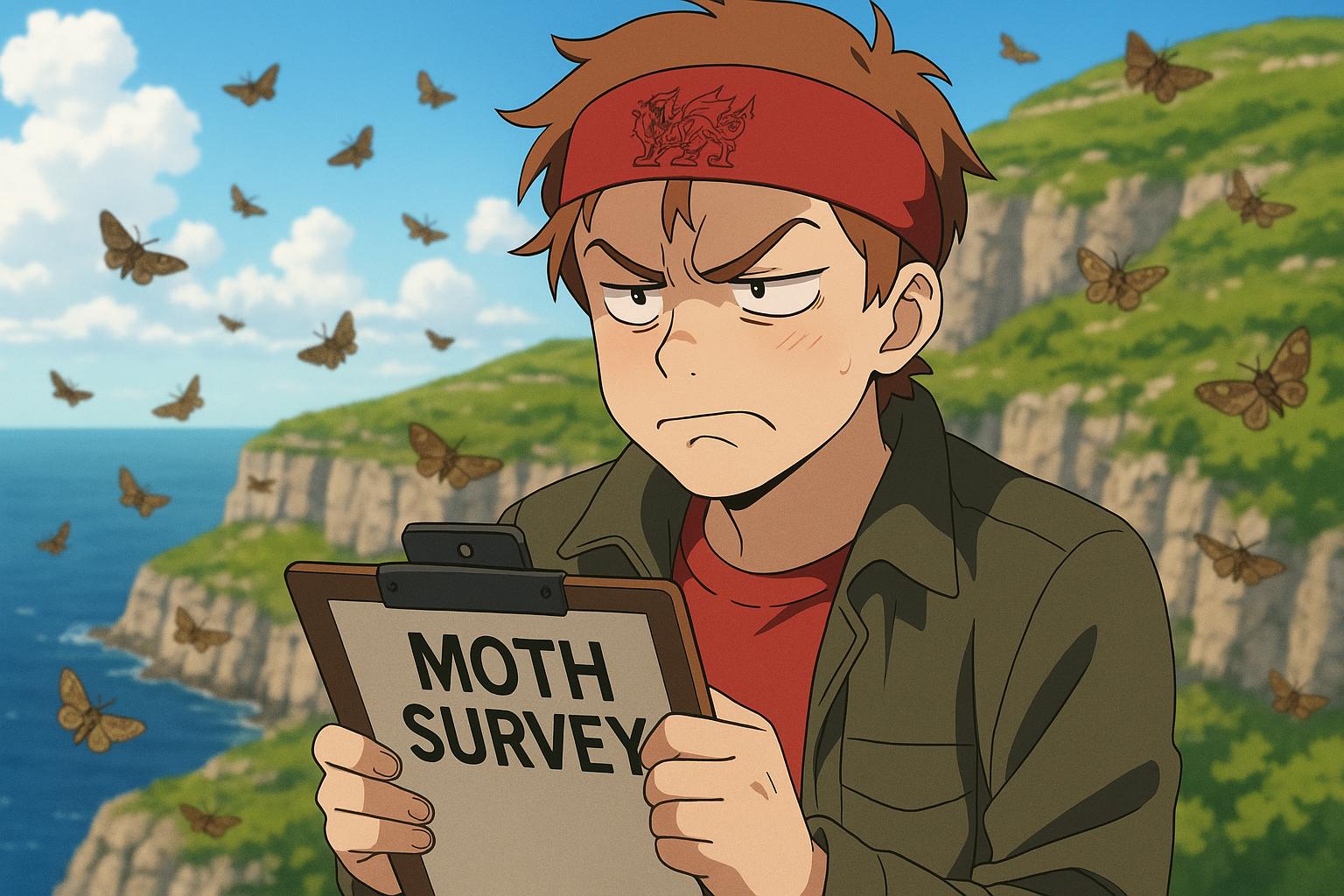Taxpayers in Wales are expressing outrage after the Labour government allocated £250,000 towards a project aimed at counting moths, sparking debate over governmental priorities amid significant cuts to public services. The initiative, titled "Cryptic Creatures of the Creuddyn," seeks to survey the limestone habitats of moths in the Llandudno area, specifically on the Great Orme headland. Funded by the Government’s Nature Networks Fund, the project received a substantial grant of £248,348 and will be managed by the Heritage Fund in partnership with local authorities and environmental groups.
Critics, including local Tory councillor Louise Emery, have labelled this expenditure as "ridiculous" during a time when families are grappling with a rising cost of living, and when local councils are compelled to limit frontline services. Emery argued that rather than spending taxpayer money on moth surveys, the Welsh Government should focus on providing adequate funding for vital services such as education, road maintenance, and public amenities.
The government's justification for the project revolves around its potential to protect various at-risk insect species, notably the Horehound Plume micro-moth, which has shown a surprising population presence, with 1,109 caterpillars recorded in recent surveys. Additionally, the project has the laudable aim of surveying another rare species, the Helianthemapion aciculare, which is believed to inhabit only the Great Orme in the UK.
In the broader context, concerns regarding the Welsh Labour government's financial decisions have been amplified in light of previous controversies. Reports surfaced of extravagant spending on high-profile dining experiences and luxury travel, amounting to £1.49 million in expenses over the past financial year. This figure represents a striking increase from the £821,871.38 spent the year before, shining a spotlight on discrepancies in resource allocation within the Welsh government.
The situation has been exacerbated by recent political turmoil, including the resignation of Vaughan Gething, the Welsh Labour leader, amid scandal concerning questionable donations from a company previously accused of environmental violations. This has sparked fears among constituents about the stability and integrity of their political leadership, particularly in how funds are managed in times of need.
The ongoing dialogue regarding the Welsh government's policies extends to broader topics such as identity politics. Some initiatives aimed at promoting Wales as an "anti-racist nation" by 2030 have drawn fire for allegedly marginalising contributions from the local white working class, particularly those rooted in the country’s historical coal-mining communities.
As public discourse continues to unfold on the topic, many are left questioning the balance between environmental initiatives and the immediate practical needs of Welsh communities. Cllr Emery’s stance that funding should prioritise local authorities over niche environmental projects resonates with a growing sentiment among constituents who feel that their basic needs are being overlooked in favour of less tangible goals.
In summary, the moth counting project highlights emerging tensions within Welsh Labour's political strategy, as it grapples with public dissatisfaction over fiscal priorities. As local councillors continue to advocate for essential services, the challenge remains for the Welsh government to align its expenditures with the pressing demands of its constituents.
Source: Noah Wire Services
